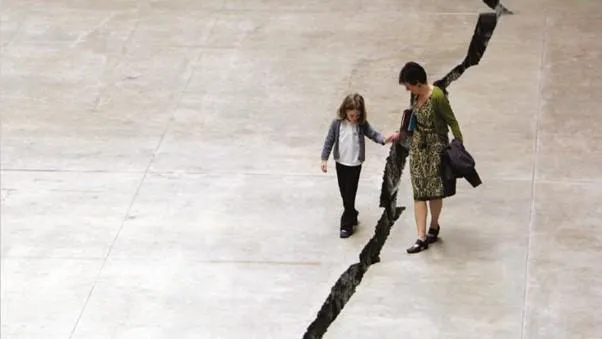08 March 2021
The Global Institute for Women’s Leadership (GIWL) at King’s is driving collaborative research that could underpin meaningful change for all, for generations to come.
The Global Institute for Women’s Leadership (GIWL) at King’s is driving collaborative research that could underpin meaningful change for all, for generations to come.

The need for change
International Women’s Day, celebrated annually on 8 March, is a chance to celebrate the social, economic, cultural and political achievements of women. But it’s also a call to action; a chance to urge for an acceleration in gender parity. And contrary to what some may believe, it’s not just a women’s issue. Research shows that gender equality secures benefits in all factions of society - from healthier and safer communities, to economic success and stronger democracies.
Generations of men and women have worked together to drive what they hoped would be meaningful and lasting change but despite progress, gender inequality remains a real and pressing problem and a global challenge. Alarmingly, evidence suggests equality could even slip backwards in the wake of the COVID-19 pandemic.
But at King’s, GIWL, a small and agile Institute founded in 2018 by former Prime Minister of Australia Julia Gillard, is working to carry out rigorous academic research that could change the conversation. Their globally collaborative work provides solid evidence and proven roadmaps for change that will ignite discussions and debate and provide the firm foundations needed to support and empower those advocating and campaigning for change.
And recent evidence would suggest it’s working.
The importance of the gender pay gap
In 2020, GIWL published research with the Fawcett Society, - the UK's leading charity campaigning for gender equality and women's rights. It was supported by research provided on a pro bono basis by law firms Latham & Watkins, Castrén & Snellman and BBA Fjeldco, with facilitation by the Thomson Reuters Foundation. The study, which analysed gender pay gap reporting legislation in 10 countries around the world, outlined how the UK must catch up with other countries in order to see faster progress on equality between women and men.
The research showed that compared with other nations, the UK is “unique in its light-touch approach” to asking employers what actions they’ll take to address any identified gender pay gaps. The powerful research was widely referenced, including in a recent report by the Government’s Women and Equalities Committee on the unequal gender impact of COVID-19. The committee's report strongly argued that the government has failed to adequately consider the impact of key policies on women and urged for change. Off the back of its publication, a coalition of organisations including the Trades Union Congress (TUC), Amnesty International, Save the Children and the Fawcett Society have come together and gathered two dozen signatories to a letter to the Equality and Human Rights Commission (EHRC). The letter urges the EHRC to use its legal powers to investigate, to avoid women’s equality being set back by decades.
Now, demonstrating the need for relentless research and a continuing conversation, a new global study carried out in 28 countries by Ipsos MORI in collaboration with GIWL, has shown that although the general public believe the gender pay gap is real and important, they are divided over whether it should be a top priority right now. Concerningly, the research, commissioned especially for International Women’s Day, showed that Britons were among least likely to see gender pay gap as a priority in COVID-19 recovery.
Julia Gillard, says: ’It's been said that we’re at a coronavirus crossroads: we face a choice between building back better or allowing progress on gender equality to stall or even be reversed. As the world decides which path to take, the good news is that the vast majority of people recognise that closing the gender pay gap is important. The bad news is that in many countries, people are less clear it should be a top priority right now, as we begin to reopen and rebuild society. But if we’re to have any chance of ensuring women don’t lose out further because of the crisis, we need to keep this issue high on the agenda.’
Looking to the future
It is becoming clear that the robust evidence that GIWL produces, can ignite the conversations and provide the foundations on which lasting change can be built. And that continued work to shed light on evolving issues is vital. The Institute will continue to ask and answer pertinent questions in a bid to progress equality and avoid slipping backwards, these currently include:
- Have government responses to COVID-19 been constructed with women in mind, or are they likely to reinforce the negative impacts of the pandemic on gender inequalities?
- Which interventions work to accelerate women’s progression in the workplace? And what benefits does this bring?
- What is the accurate state of women’s leadership globally and how is it changing over time?
- What impact do women political leaders have on women’s political aspirations and on policy outcomes globally?
Everyone can play a part in creating change and helping to build fairer societies - whether it’s mentoring a student to reach their potential, funding research that will help address structural inequalities or supporting efforts to get more women studying STEM at King’s. If you would like to find out more about GIWL and how you can get involved, we’d love to hear from you. You can also check out the website at https://www.kcl.ac.uk/giwl.
